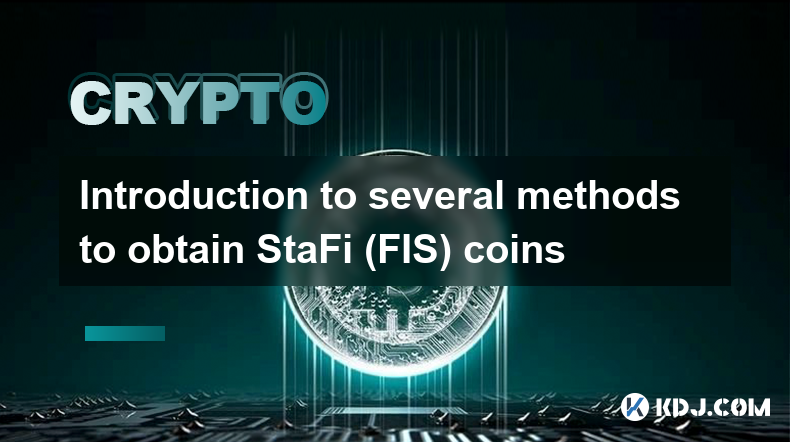-
 Bitcoin
Bitcoin $107,443.3008
-1.17% -
 Ethereum
Ethereum $2,494.2503
-0.63% -
 Tether USDt
Tether USDt $1.0003
0.00% -
 XRP
XRP $2.2496
2.23% -
 BNB
BNB $658.7569
0.63% -
 Solana
Solana $154.9826
1.94% -
 USDC
USDC $1.0000
0.01% -
 TRON
TRON $0.2799
1.07% -
 Dogecoin
Dogecoin $0.1659
-1.78% -
 Cardano
Cardano $0.5745
0.25% -
 Hyperliquid
Hyperliquid $39.7005
0.13% -
 Bitcoin Cash
Bitcoin Cash $519.5989
3.78% -
 Sui
Sui $2.7874
-2.40% -
 Chainlink
Chainlink $13.3762
-1.69% -
 UNUS SED LEO
UNUS SED LEO $9.0784
-0.64% -
 Avalanche
Avalanche $17.9846
-2.81% -
 Stellar
Stellar $0.2390
-0.06% -
 Toncoin
Toncoin $2.9028
0.25% -
 Shiba Inu
Shiba Inu $0.0...01147
-2.17% -
 Litecoin
Litecoin $86.6956
-1.27% -
 Hedera
Hedera $0.1508
-0.50% -
 Monero
Monero $322.6222
3.26% -
 Polkadot
Polkadot $3.4124
-2.99% -
 Dai
Dai $0.9999
0.00% -
 Bitget Token
Bitget Token $4.5434
-1.97% -
 Ethena USDe
Ethena USDe $1.0002
0.00% -
 Uniswap
Uniswap $7.1562
-2.61% -
 Aave
Aave $275.8830
-1.02% -
 Pepe
Pepe $0.0...09790
-4.04% -
 Pi
Pi $0.5018
-5.09%
Introduction to several methods to obtain StaFi (FIS) coins
Users can obtain FIS coins through various methods, including purchasing them on exchanges, staking, participating in governance, and earning them through airdrops and referral rewards.
Jan 08, 2025 at 07:31 pm

Key Points:
- StaFi (FIS) is a decentralized protocol that allows users to stake their liquid assets for rewards.
- There are several ways to obtain FIS coins, including staking, participating in governance, and purchasing them on exchanges.
- The most straightforward way to obtain FIS coins is to purchase them on a cryptocurrency exchange.
- Staking FIS coins allows users to earn rewards in the form of FIS tokens, as well as other benefits such as voting power and access to exclusive features.
- Participating in governance provides FIS holders with the opportunity to shape the future of the StaFi protocol.
Methods to Obtain StaFi (FIS) Coins:
1. Purchase FIS Coins on an Exchange
The most straightforward way to obtain FIS coins is to purchase them on a cryptocurrency exchange. Several exchanges support the trading of FIS coins, including Binance, KuCoin, and Gate.io. To purchase FIS coins on an exchange, you will need to create an account and deposit funds into your account. Once you have deposited funds, you can place an order to buy FIS coins at the current market price.
2. Stake FIS Coins
FIS coin holders can earn rewards by staking their coins on the StaFi platform. Staking involves locking up your FIS coins for a specified period of time, during which you will earn rewards in the form of FIS tokens. The rewards you earn will depend on the amount of FIS coins you stake, the length of time you stake them for, and the current staking rewards rate.
3. Participate in Governance
FIS coin holders can also earn rewards by participating in governance. Governance refers to the process of making decisions about the future of the StaFi protocol. FIS coin holders can participate in governance by voting on proposals submitted by the StaFi team or other community members. By participating in governance, FIS coin holders can help to shape the future of the protocol and earn rewards for their contributions.
4. Participate in Airdrops and Contests
StaFi occasionally holds airdrops and contests where users can earn free FIS coins. Airdrops are distributions of free tokens to existing holders of a particular cryptocurrency. Contests are competitions where users can earn FIS coins by completing certain tasks, such as writing articles or creating videos about the StaFi protocol.
5. Earn FIS Coins as Referral Rewards
StaFi has a referral program where users can earn FIS coins by referring new users to the platform. When a new user signs up for StaFi using your referral link, you will earn a commission in the form of FIS tokens. The amount of the commission you earn will depend on the number of new users you refer and the amount of FIS coins they stake.
FAQs:
What is the StaFi (FIS) protocol?
StaFi is a decentralized protocol that allows users to stake their liquid assets for rewards. StaFi aims to bridge the gap between decentralized finance (DeFi) and traditional staking by allowing users to earn rewards on their staked assets while still maintaining liquidity.
How do I stake FIS coins?
To stake FIS coins, you will need to create a wallet that supports staking. Once you have created a wallet, you can transfer your FIS coins to the wallet and stake them using the staking interface.
What are the benefits of staking FIS coins?
Staking FIS coins provides several benefits, including:
- Earning rewards in the form of FIS tokens
- Voting power in governance
- Access to exclusive features
Where can I buy FIS coins?
FIS coins can be purchased on several cryptocurrency exchanges, including Binance, KuCoin, and Gate.io.
Disclaimer:info@kdj.com
The information provided is not trading advice. kdj.com does not assume any responsibility for any investments made based on the information provided in this article. Cryptocurrencies are highly volatile and it is highly recommended that you invest with caution after thorough research!
If you believe that the content used on this website infringes your copyright, please contact us immediately (info@kdj.com) and we will delete it promptly.
- Bitcoin, Bitfinex, and Acceleration: Decoding the Crypto Crossroads
- 2025-07-01 12:50:11
- SOL, XRP, LTC ETFs: Are We on the Cusp of Crypto History?
- 2025-07-01 12:50:11
- BNB Chain's Maxwell Upgrade: Sub-Second Blocks and a Whole Lotta Speed!
- 2025-07-01 13:10:12
- Bitcoin, Ethereum, Crypto Decline? Nah, Just a New York Minute!
- 2025-07-01 13:10:12
- Coinpass: The Gold-Standard Crypto Platform for UK Businesses
- 2025-07-01 12:30:12
- TradFi Meets Onchain: Banking Experiences Reimagined
- 2025-07-01 13:30:12
Related knowledge

How to customize USDT TRC20 mining fees? Flexible adjustment tutorial
Jun 13,2025 at 01:42am
Understanding USDT TRC20 Mining FeesMining fees on the TRON (TRC20) network are essential for processing transactions. Unlike Bitcoin or Ethereum, where miners directly validate transactions, TRON uses a delegated proof-of-stake (DPoS) mechanism. However, users still need to pay bandwidth and energy fees, which are collectively referred to as 'mining fe...

USDT TRC20 transaction is stuck? Solution summary
Jun 14,2025 at 11:15pm
Understanding USDT TRC20 TransactionsWhen users mention that a USDT TRC20 transaction is stuck, they typically refer to a situation where the transfer of Tether (USDT) on the TRON blockchain has not been confirmed for an extended period. This issue may arise due to various reasons such as network congestion, insufficient transaction fees, or wallet-rela...

How to cancel USDT TRC20 unconfirmed transactions? Operation guide
Jun 13,2025 at 11:01pm
Understanding USDT TRC20 Unconfirmed TransactionsWhen dealing with USDT TRC20 transactions, it’s crucial to understand what an unconfirmed transaction means. An unconfirmed transaction is one that has been broadcasted to the blockchain network but hasn’t yet been included in a block. This typically occurs due to low transaction fees or network congestio...

How to check USDT TRC20 balance? Introduction to multiple query methods
Jun 21,2025 at 02:42am
Understanding USDT TRC20 and Its ImportanceUSDT (Tether) is one of the most widely used stablecoins in the cryptocurrency market. It exists on multiple blockchain networks, including TRC20, which operates on the Tron (TRX) network. Checking your USDT TRC20 balance accurately is crucial for users who hold or transact with this asset. Whether you're sendi...

What to do if USDT TRC20 transfers are congested? Speed up trading skills
Jun 13,2025 at 09:56am
Understanding USDT TRC20 Transfer CongestionWhen transferring USDT TRC20, users may occasionally experience delays or congestion. This typically occurs due to network overload on the TRON blockchain, which hosts the TRC20 version of Tether. Unlike the ERC20 variant (which runs on Ethereum), TRC20 transactions are generally faster and cheaper, but during...

The relationship between USDT TRC20 and TRON chain: technical background analysis
Jun 12,2025 at 01:28pm
What is USDT TRC20?USDT TRC20 refers to the Tether (USDT) token issued on the TRON blockchain using the TRC-20 standard. Unlike the more commonly known ERC-20 version of USDT (which runs on Ethereum), the TRC-20 variant leverages the TRON network's infrastructure for faster and cheaper transactions. The emergence of this version came as part of Tether’s...

How to customize USDT TRC20 mining fees? Flexible adjustment tutorial
Jun 13,2025 at 01:42am
Understanding USDT TRC20 Mining FeesMining fees on the TRON (TRC20) network are essential for processing transactions. Unlike Bitcoin or Ethereum, where miners directly validate transactions, TRON uses a delegated proof-of-stake (DPoS) mechanism. However, users still need to pay bandwidth and energy fees, which are collectively referred to as 'mining fe...

USDT TRC20 transaction is stuck? Solution summary
Jun 14,2025 at 11:15pm
Understanding USDT TRC20 TransactionsWhen users mention that a USDT TRC20 transaction is stuck, they typically refer to a situation where the transfer of Tether (USDT) on the TRON blockchain has not been confirmed for an extended period. This issue may arise due to various reasons such as network congestion, insufficient transaction fees, or wallet-rela...

How to cancel USDT TRC20 unconfirmed transactions? Operation guide
Jun 13,2025 at 11:01pm
Understanding USDT TRC20 Unconfirmed TransactionsWhen dealing with USDT TRC20 transactions, it’s crucial to understand what an unconfirmed transaction means. An unconfirmed transaction is one that has been broadcasted to the blockchain network but hasn’t yet been included in a block. This typically occurs due to low transaction fees or network congestio...

How to check USDT TRC20 balance? Introduction to multiple query methods
Jun 21,2025 at 02:42am
Understanding USDT TRC20 and Its ImportanceUSDT (Tether) is one of the most widely used stablecoins in the cryptocurrency market. It exists on multiple blockchain networks, including TRC20, which operates on the Tron (TRX) network. Checking your USDT TRC20 balance accurately is crucial for users who hold or transact with this asset. Whether you're sendi...

What to do if USDT TRC20 transfers are congested? Speed up trading skills
Jun 13,2025 at 09:56am
Understanding USDT TRC20 Transfer CongestionWhen transferring USDT TRC20, users may occasionally experience delays or congestion. This typically occurs due to network overload on the TRON blockchain, which hosts the TRC20 version of Tether. Unlike the ERC20 variant (which runs on Ethereum), TRC20 transactions are generally faster and cheaper, but during...

The relationship between USDT TRC20 and TRON chain: technical background analysis
Jun 12,2025 at 01:28pm
What is USDT TRC20?USDT TRC20 refers to the Tether (USDT) token issued on the TRON blockchain using the TRC-20 standard. Unlike the more commonly known ERC-20 version of USDT (which runs on Ethereum), the TRC-20 variant leverages the TRON network's infrastructure for faster and cheaper transactions. The emergence of this version came as part of Tether’s...
See all articles

























































































